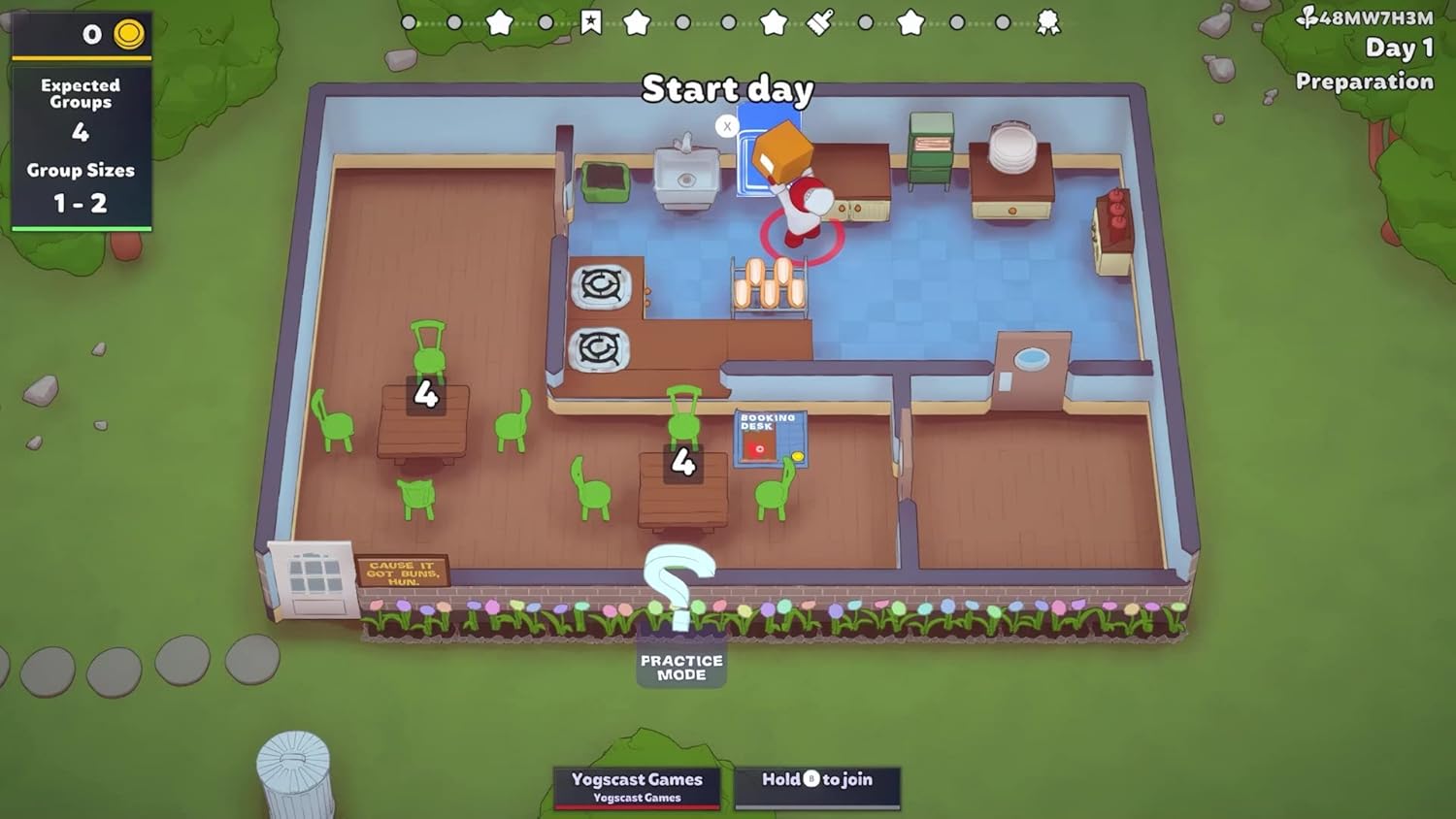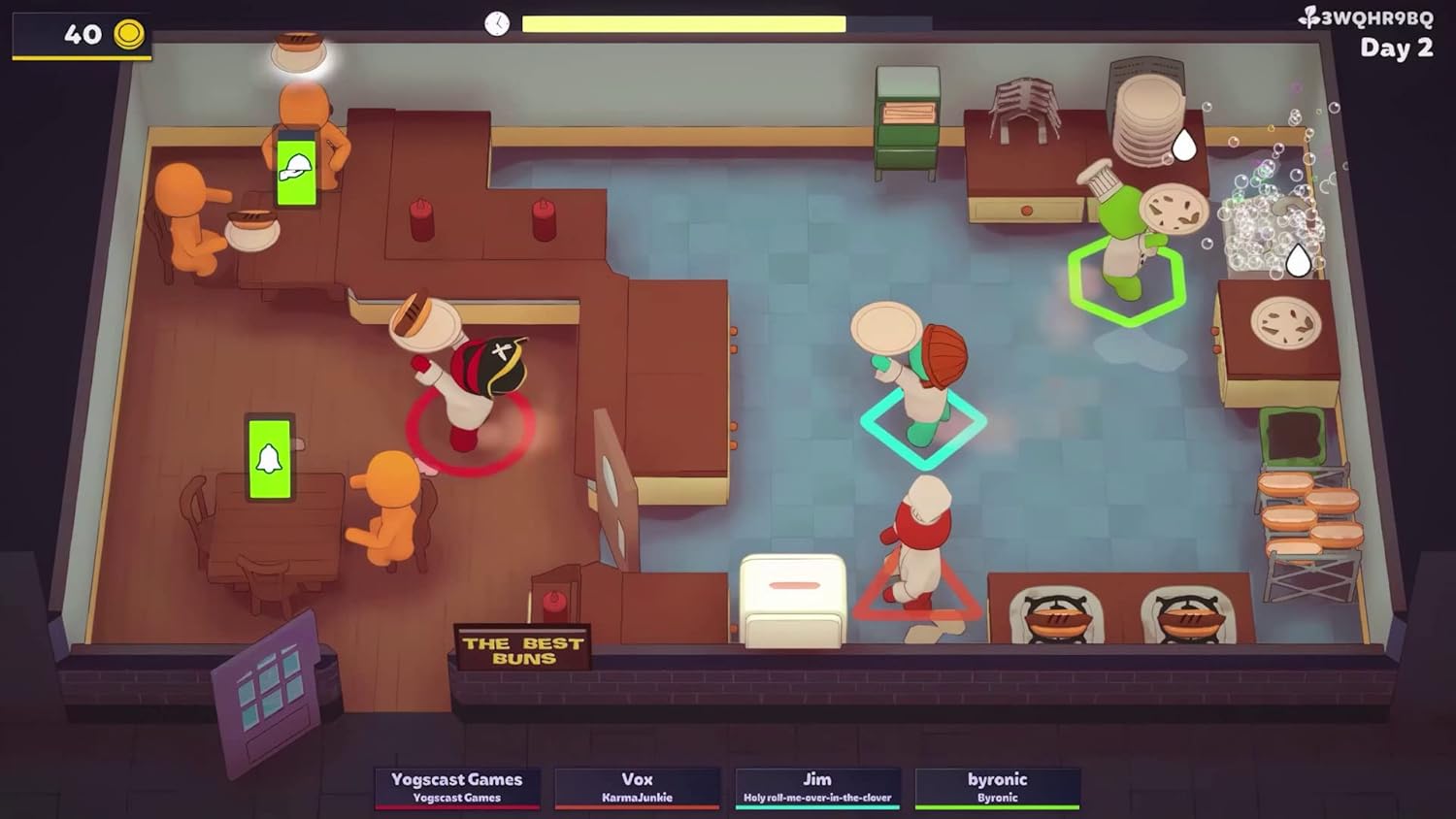Client Interview -
Unlocking success in indie gaming
Achieving commercial success in the competitive world of video game development requires more than just creative brilliance – it demands strategic delegation and the right partnerships.
In this exclusive interview, part of our editorial spotlight on inspiring innovators, entrepreneurs, and business leaders reshaping industries, Gavin Smith, senior commercial banker at Arbuthnot Latham and resident expert in video games, speaks with Alastair Janse van Rensburg, creator of the multi-million selling indie game, PlateUp!.
Alastair shares his journey from cyber security to game development, highlighting the importance of focusing on creative aspects and entrusting business functions to experts. Readers will learn valuable lessons on navigating the business challenges of game development and the strategies that contributed to PlateUp!’s remarkable success.
PlateUp!, a multiplayer co-operative video game developed by Alastair's studio, It’s Happening, became a breakout hit after its launch in August 2022, selling over two million copies on Steam with the support of publisher, Yogscast Games.

Tell us about your personal growth journey that led to creating PlateUp!?
Alastair: I trod a path familiar to many people working in the video games sector: I started out in an adjacent industry and turned my passion for games into a viable development project. I was an academic at Oxford. In fact, I did my PhD in cyber security. Then during the pandemic, I thought, "What if I made a game?"
How did your background in cyber security help in developing a game?
Alastair: My idea for a game came from the co-operative video games I played with housemates to pass the time during lockdowns. While I started working on a game as a “part-time hobby”, it gradually took over my working time - becoming 50% and then 90% of my working life as I got deeper into building PlateUp!’s multiplayer mechanics. The process of shifting from being a cyber security expert to a video game developer was surprisingly seamless, aided by some transferable skills between the two.
I had a mathematical focus on cyber security, looking at systems and designing things to make sure they all work together well. My game is following those similar patterns in the implementation on the programming side. It is designing this big system that works together and plays along with itself.

Ensuring systemic game design works well must be crucial. What is your advice for first-time independent developers?
Alastair: It is crucial for first-time independent developers to ensure that their game does not miss the mark when it launches. I think you often get people who get to the point of launching a game where, for instance, they have loads of likes on [Steam] wish lists, they have loads of marketing, they have a big brand built up, and the game does not sell as well as they wanted to.
In my mind, it is always because you did not focus on the game. If you do not put that absolutely forefront, then what is going to happen is you will have people really excited about it, but you have not had the time to make the game what it needs to be.
So, focusing on the creative aspect is vital. How did you handle the commercial challenges?
Alastair: The way to ensure such systemic game design works well is through a constant focus on developing it. I credit a lot of my success to having the right network of partners around me who allowed me to focus on my creative vision – freeing me up to do the valuable creative work that put me on course to success.
You mentioned working with a publisher. How did that decision come about, and how did it benefit you?
Alastair: My biggest decision was whether to work with a publisher to smooth off many of the major decisions relating to the sale and marketing of PlateUp! In my experience, it was incredibly valuable to not have to worry about anything other than my game.
The business side of things was able to almost completely vanish. Early in my partnership with Yogscast, I remember we had a conversation about our sales and discount strategy - and he was making suggestions and telling me their plans. I told them it didn’t matter to me, and they were really surprised. It wasn’t that I didn’t think it was important, but I could trust them to know better than I do about it all. I trusted them as a partner; we were in it together, and our interests are aligned. We both want the game to sell, and they knew more about that decision than I did. So, what they said became our strategy, and I could focus on developing the game.

Trusting your partners seems to have played a significant role. How did you choose your partners?
Alastair: It is important to understand what you are comfortable doing and what you are not. As a solo developer, I preferred to avoid getting “into the weeds” of business decisions. Bigger teams with a wider range of expertise may feel comfortable keeping commercial, marketing, or legal functions in-house - allowing them to strike a deal that is right for them with potential partners.
Also, what support your business needs will change as it grows. While I was delighted with the work Yogscast Games did supporting PlateUp!, now that my team has grown, some tasks (such as the creation of marketing assets for the game) can be done in-house: changing what I will need from a publisher in the future.
Any final advice for developers looking to succeed in this industry?
Alastair: I firmly believe that if you make a good quality game and you have the people sorting out the other bits of your business, that will lead you to viable success. Whereas if you try and do everything, that risks the fundamental part of your business – which is making your game good. The cost of not engaging with those kinds of services is a threat to the quality of your game – suggesting that an upfront cost saving may cause pain in the long term.
By understanding the limits of my resources and expertise, I was able to bring in the help I needed to succeed – delivering a multi-million selling game that is the aspiration of video games businesses across the world in the process.
Share your success story and connect with other inspiring leaders
Alastair’s story is a testament to how creativity and strategic partnerships can lead to remarkable success in the competitive gaming industry. If you are an entrepreneur or business leader who has transformed your passion into a thriving business, we would love to share your story too. Reach out to your commercial or private banker to explore how we can highlight your journey within our exclusive client community.
We also understand the power of meaningful connections. If you are interested in connecting with other visionary leaders like Alastair to explore new opportunities, contact your banker to be introduced to our network of innovators and industry shapers.
Further reading
Insights
The latest insights, views and industry news from Arbuthnot Latham focusing on private banking, commercial banking and wealth management.
From medtech innovator to venture capital trailblazer
Did you know that the most common reason for a mortgage application being delayed is that the supporting documents are not provided promptly?
Healthcare in your pocket: Medivault and their revolutionisation of healthcare
Medivault, led by CEO Mark Jackson, aims to revolutionise healthcare by providing secure, accessible medical records, empowering patients and healthcare providers with data-driven insights for better, proactive health management.